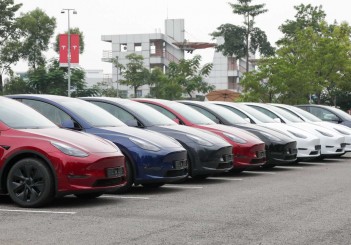Arriving in 2020, the C-HR electric vehicle is only planned for the Chinese market at the moment. It was unveiled with two new versions of Corolla and Levin plug-in hybrid saloons that will land in 2019.
These models represent part of a very significant commitment to the Chinese market by Toyota, and all three will see their electric motors, batteries, inverters and "other core technologies" for the electrification of vehicles produced locally.
In 2020 the carmaker will also be opening a new battery testing facility in China, as well as strengthening its other research and development and production facilities in the region.

Last year, Toyota sold an impressive 140,000 electrified vehicles in China, which is probably partly why it plans to raise its production capacity for nickel-metal hydride battery units to 220,000 units in 2020.
It's quite a departure for a company that said not long ago that it didn't see a future in the short term for all-electric cars, and would focus on hybrids and more efficient petrol engines.
This conversion to the electric cause isn't a completely voluntary move, though, as the Chinese government is imposing a requirement that a certain percentage of a car brand's sales in the country have to be electric.
No details about the range and performance of the C-HR EV have been released, but it will be the first full-EV on the company's TNGA platform which also underpins the Prius hybrid and the upcoming RAV4. The architecture will also be used for future Lexus models, including the next-generation CT.
Toyota revealed recently that it's working on making solid-state batteries - allow more energy to be stored than their lithium-ion equivalents - commercially viable for vehicles by the early 2020s. If successful, this could be a gamechanger for electric vehicles.










